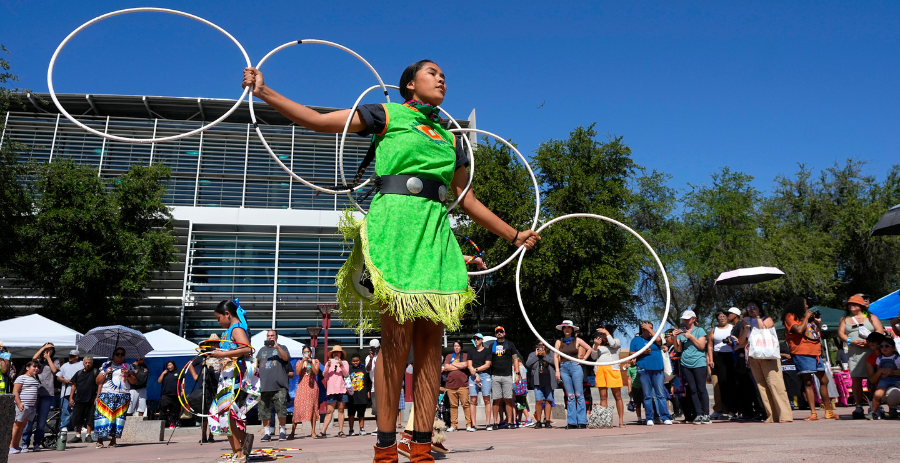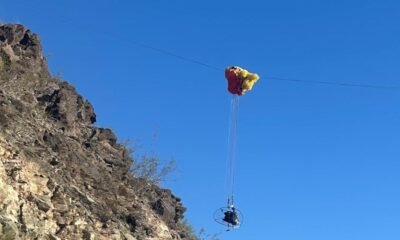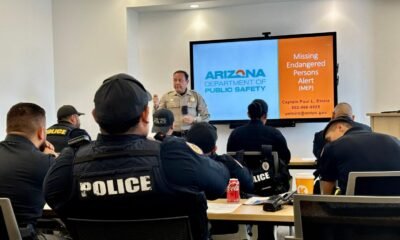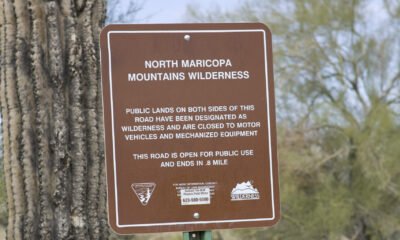arizona
Indigenous Peoples Day: A Celebration Shaping the Future of Elections

Native American communities across the nation are celebrating Indigenous Peoples Day with a strong emphasis on voter mobilization ahead of the upcoming elections. Events planned for this Monday range from a lively voting rally in Minneapolis to an informative public discussion about the Native vote at Virginia Tech.
These gatherings aim to highlight the significance of Native votes, especially as the country approaches Election Day in about three weeks. While not a federal holiday, Indigenous Peoples Day is observed in 17 states, captivating attention as Native populations seek to increase voter turnout.
At the Minneapolis event, more than 200 individuals registered to vote in just a few hours. Volunteers distributed T-shirts, stickers, and posters crafted by artists from various tribes, emphasizing the theme: Make voting a tradition.
The impact of Native voters was particularly significant in the 2020 presidential election. In Arizona, tribal voter turnout surged, contributing to Joe Biden’s victory in a state that had not favored a Democratic candidate since 1996.
Janeen Comenote, the executive director of the National Urban Indian Family Coalition, noted the urgency of mobilizing voters this year. “We’re really about just getting Native voters out, not telling them how to vote,” she explained, emphasizing the importance of recognizing individual voices within the community.
On the same day, the Democratic National Committee launched a substantial ad campaign targeting Native voters in states like Arizona, North Carolina, Montana, and Alaska, primarily utilizing Native-owned media.
In Arizona, the coalition collaborated with the Phoenix Indian Center for a town hall event titled “Democracy Is Indigenous: Power Of The Native Vote.” This gathering featured speakers, performances, and Indigenous artwork themed around the values of democracy.
Local artist Richelle Key created a painting live during the event, celebrating the importance of cultural preservation. Her work, along with another piece promoting the message “Vote for our future,” highlighted Indigenous perspectives on voting.
Key expressed the significance of voting, stating, “It’s important to vote because we don’t want to be forgotten.”
In North Carolina, the Triangle Native American Society partnered with Comenote’s coalition to celebrate the 100th anniversary of the Indian Citizenship Act of 1924 with a focus on voter information and community engagement.
At another celebration in Arizona, Walter Murillo of the Choctaw Nation addressed the ongoing relevance of Native voter power. “That is especially important in an election year,” he noted, pointing out ongoing efforts to drive voter engagement.
Across the country, various events included traditional dances and sunrise gatherings at locations from the Santa Fe Indian School in New Mexico to the iconic Alcatraz Island in San Francisco, a long-standing emblem of Indigenous activism.
Indigenous Peoples Day, occurring annually on the second Monday of October, coincides with Columbus Day and holds a place in the cultural calendar of multiple states, including Washington and South Dakota. According to Pew Research Center, it reflects a growing movement toward recognizing Native American history and contributions.
___
Contributions to this report came from Associated Press journalists Ross Franklin and Katie Oyan in Phoenix, along with Susan Montoya Bryan in Albuquerque, New Mexico.


















